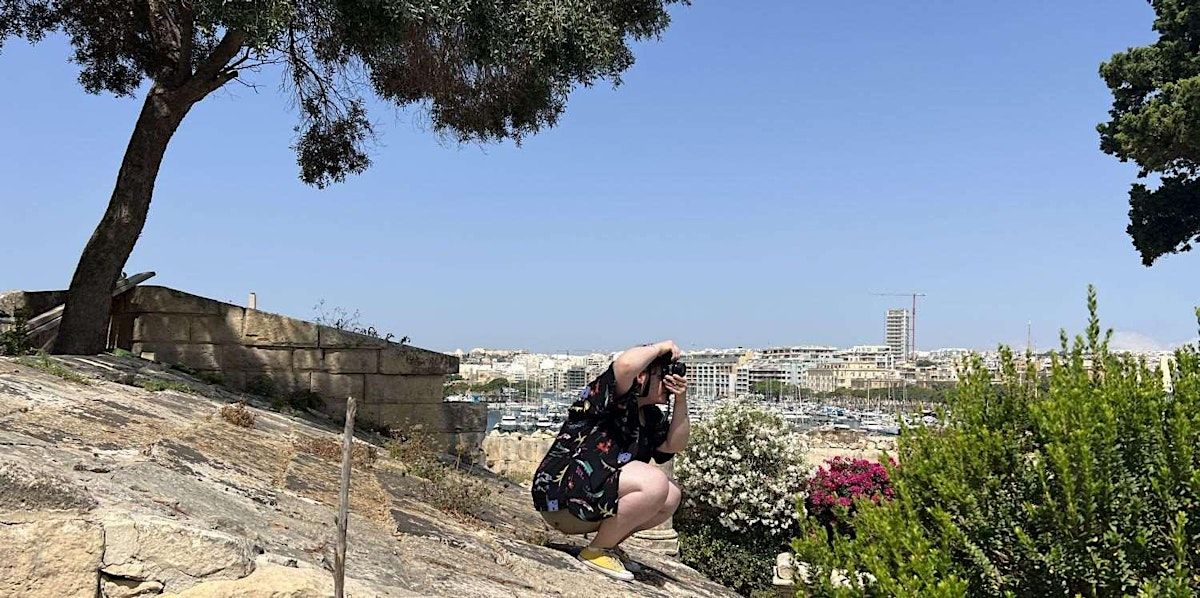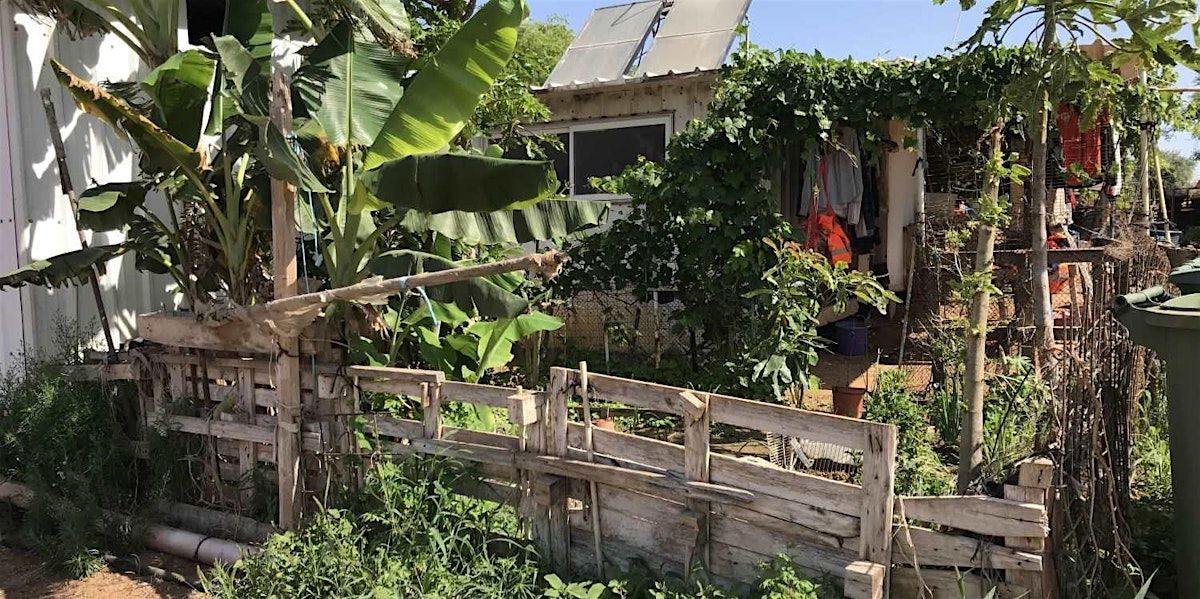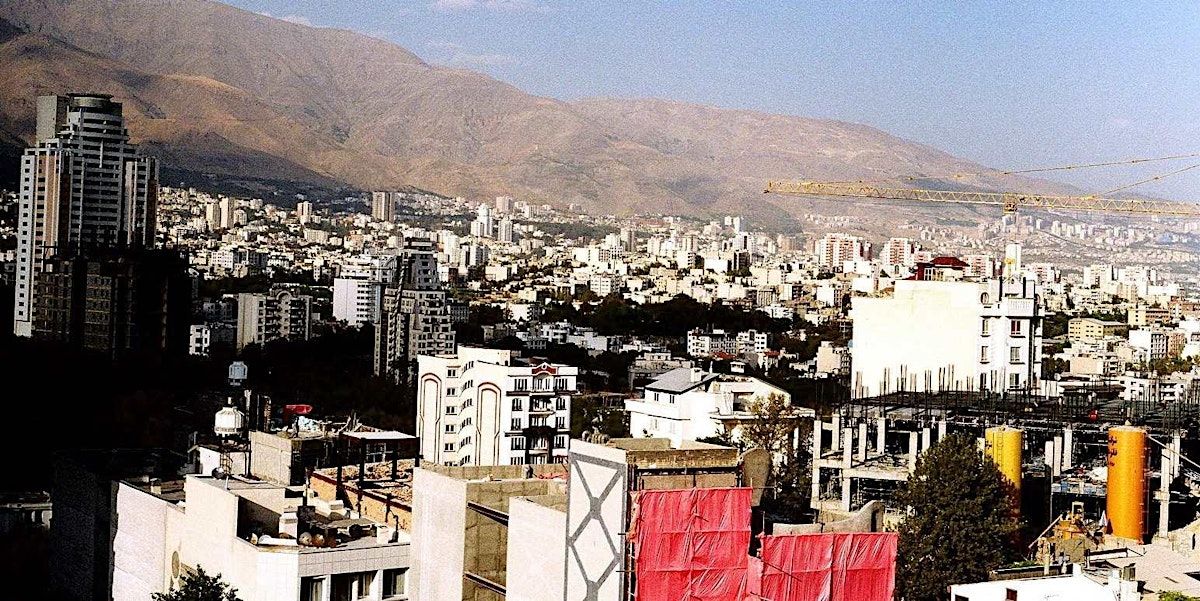
About this Event
This year, the Gardens Trust are delighted to have eight fascinating international presentations held across not one but two events!
Join us on Saturday 23rd and Saturday 30th November to hear about research that is ‘hot off the press’, as we take you from the early-modern period right up until the current day. We will be making stops in places as varied as Iran, Wales, Turkey, Malta, Ireland, Israel, and even Cheshire Zoo! See the full programme below for details – we look forward to seeing you there.
Tickets for the symposium are free but donations are very welcome!
Go to: https://bit.ly/DonateGardensTrust
You can view and register for your ticket for part 1 on
Ticket sales close 4 hours before the event.
If you are viewing Eventbrite on the iOS app you may need to use a web browser on desktop or mobile to register or you can follow the link here.
Attendees will be sent a Zoom link 2 days prior to the start of the talk, and a link to the recorded session, available for two weeks, will be sent shortly afterwards.
Image: CC0 public domain
.....
PROGRAMME FOR SATURDAY 30th NOVEMBER, 2-4pm (UK time)
Chair: India Cole, PhD candidate, Queen Mary University of London and Oxford Botanic Garden

1. Kealey Kennedy: Colonial Landscapes - The Unique Phenomenon of Garden Cemeteries in Malta
This paper explores the unique design and cultural significance of garden cemeteries in Malta, with a focus on their development under British colonial influence. Cemeteries such as the Msida Bastion Garden & Historic Cemetery showcase British landscaping aesthetics imposed on the Maltese landscape, creating serene burial grounds that double as public parks. The garden park aspect of this cemetery becomes complicated when considered within its surroundings: a plague cemetery, cholera cemetery, Greek Orthodox cemetery, and an old Jewish cemetery, many of which were poorly cared for or abandoned during the most active period of the Bastion Cemetery's history. Additionally, there are well over 500 burials in the Bastion Cemetery, yet only one is known to be Maltese, highlighting its predominantly British character.
The research traces the origins and evolution of these cemeteries in 19th-century Malta, analysing their landscaped grounds, ornamental plantings, and monumental architecture. The study examines the influence of British design principles, the colonial subjugation of the Maltese and their land, and the integration of local cultural elements into the cemetery design. By situating these cemeteries within Malta's deeply stratified historical and cultural landscape, this paper underscores their significance as sites of heritage and memory.
Kealey Kennedy is a researcher with a background in cultural heritage. She holds a BMus in Music and Medieval & Early Modern Studies from Carleton University and an MA in Public History from the University of Western Ontario. Currently, she works at the Inquisitor's Palace in Birgu, Malta and her experience includes research and grounds work at the Msida Bastion Garden & Historic Cemetery. Her research interests encompass Malta’s cemetery history, mortuary archaeology, plagues, and the veneration of Santu Rokku. Kealey brings a unique perspective to the study of Maltese cemeteries, being Irish and with her experience in inquisitorial and ethnographic history.
…..

2. Georgia M. C. Russell: Chester Zoological Gardens - Recreation and Hope in Wartime Cheshire (1935-1945)
Nine-decades since its humble beginnings, it seems a pertinent moment to reflect upon the overlooked history of what the locals call ‘Our Zoo’. Chester Zoo, once named Chester Zoological Gardens, continues to provide an escape for the general public and has an extensive history that is absent from the somewhat lacking scholarship of green spacehistory. Despite the troubles of rationing, air strikes and supply shortages during the Second World War, Chester Zoo thrived and as such became a symbolic space of hope. Between revolutionising zoo design, creating an innovative adoption scheme and focusing on health space trends of the late nineteenth and early twentieth centuries, Chester Zoo, in the centre of war, reached its first profit. This paper aims to demonstrate the importance of recreation and green space in a period of calamity; highlight how hope could be found in unlikely spaces.
Georgia M. C. Russell received a first-class honours degree at the University of Chester in History with English Literature, before receiving a Distinction in MA History at Chester, where she developed an interest in landscape history. Since 2021, she has undertaken a part-time PhD in History at University of Durham focusing primarily on Medieval Literature and Courtly Spaces. Georgia is in year four of her studies. Georgia is also Full-Time Secondary school English Teacher and is currently undertaking an assessment only QTS qualification.
…..

3. Zohar Shvarzberg: Rooted Traditions - Exploring Thai Migrant Gardens in Israel
Gardens cultivated by Thai agricultural migrants are common in the rural landscapes of Israel. Nearly 25 thousand Thai agricultural migrants live and work in Israel, migrating for a period of 5 years. Their distinct gardens reflect their culture and continuation of homeland traditions. This research represents the first comprehensive exploration of these gardens, aiming to document the gardens in detail, to compare them to gardens in migrants’ homeland and to uncover their purposes and meanings.
The study found that the gardens, located near migrants’ residences and within fields, exhibit a unique layered vertical structure, applying traditional techniques for raising edible plants while adapting to the local environment. The gardens largely resemble traditional Thai homegardens, however, the gardens in Israel consist of less trees and less vertical layers, suggesting the impact of temporality on gardening and migrants’ preference to invest in fast yielding, herbaceous plants. Interviews with migrants revealed that the primary motivations for gardening were food production and saving money to support relatives in Thailand.
Through this research I wish to raise awareness of the gardens that Thai agricultural migrants cultivate in Israel and to promote their conservation as significant cultural sites.
Architect Zohar Shvarzberg holds a B. Arch degree and an MSc in landscape architecture, both with distinction from the Technion – Israel Institute of Technology. Her research on the gardens of Thai agricultural migrants in Israel was presented at reputable conferences and won first prize at the Technion graduate students’ research conference. As a trustee of the Council for Conservation of Heritage Sites in Israel, Zohar is particularly interested in landscape and garden conservation. With over a decade of experience in architecture firms, Zohar is currently an architect and urban planner at Herzliya Municipality.
Image: photo ©Zohar Shvarzberg
…..

4. Viveca Mellegard: Troubled Paradise
The garden plays a role in the Persian psyche as a place of refuge, reflection and respite from a harsh environment. From their invention at the height of the Persian Empire three thousand years ago, through the advent of Islam and up to the present day in post-Islamic Iran, gardens have evoked the image of paradise on earth.
Part memoir, part reportage, the paper reflects on the significance of nature in the city and cultural meanings of the garden through Iranʼs long and turbulent history. In the years following the Islamic Revolution in 1979, the walled gardens in the wealthy northern part of Tehran became hotspots for property development and economic as well as political control. Housing pressure and investment opportunities led to widespread loss of gardens to make way for high rise luxury apartment blocks. At the same time as the city underwent massive transformations on the surface, its location on several major earthquake fault lines exacerbated the threat of widespread destruction.
Forty years on, the paper reflects on the ways in which gardens and urban green spaces are enabling the citizens of Tehran to establish a sense of belonging and wellbeing. Celebrating nature-based traditions is a powerful, and provocative, way to express a deep-rooted identification with ancient culture and identity that transgress political power and ideology.
4. Viveca Mellegardis a PhD candidate whose project is funded by the Arts and Humanities Research Council (AHRC) as part of the Techne Doctoral Training Partnership. She is working in the Economic Botany Department at Royal Botanic Gardens, Kew on research linking Kew’s collections of Indigofera tinctoria from India to contemporary indigo production and dyeing in West Bengal. She is particularly interested in the knowledge and skills embedded in the craft of dyeing with natural indigo and how embodied practices can cultivate human-plant relationships.
Image: photo ©Viveca Mellegard
…..
Event Venue
Online
GBP 0.00












